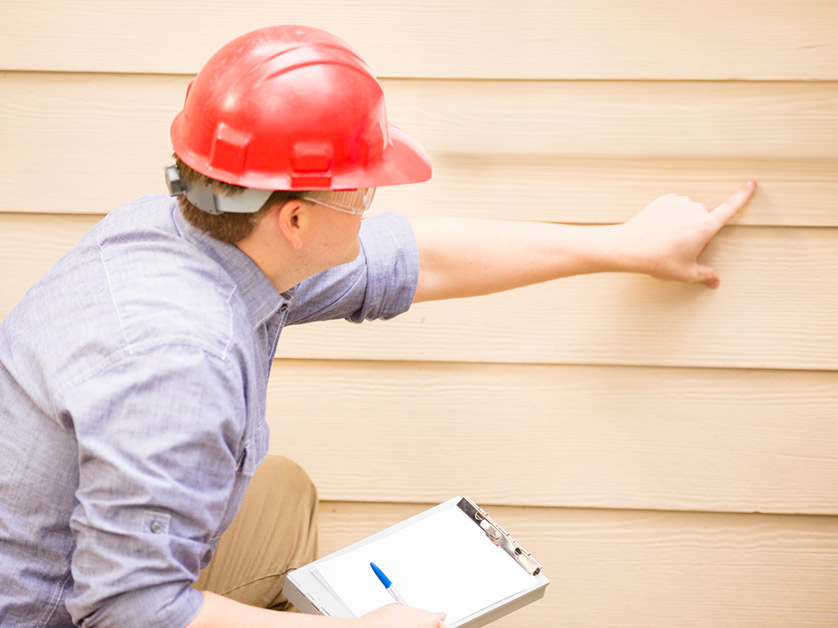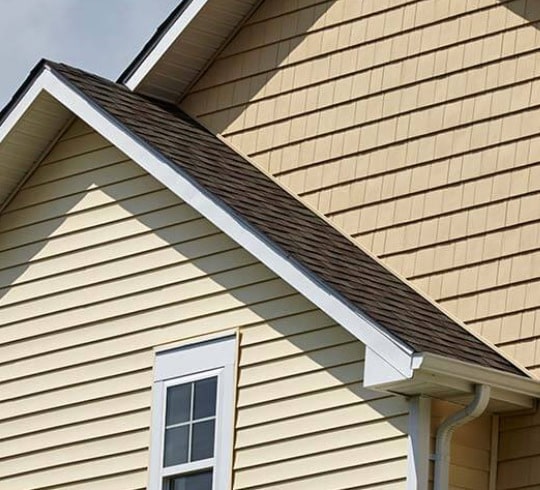The Vital Overview to the Numerous Sorts Of Exterior Siding and Their Special Advantages
In the world of home renovation, choosing the appropriate home siding is a vital decision that influences both visual allure and functional performance. The selection of products readily available, such as timber, vinyl, fiber brick, steel, and cement, each deal one-of-a-kind advantages that deal with various demands and preferences. Understanding these distinctions can dramatically enhance the longevity and worth of a residential property - morris siding contractor. However, with so several options to think about, which house siding material really sticks out for your details task? Checking out these options can cause notified choices that line up with both design and functionality.
Timber Home Siding
Timber home siding, a prominent option for domestic exteriors, offers a classic visual that incorporates all-natural charm with structural honesty. This house siding product is readily available in various designs, consisting of clapboard, shingles, and board-and-batten, permitting home owners to customize their appearance to match their style preferences. Timber exterior siding is typically crafted from durable varieties such as cedar, redwood, or yearn, which are known for their strength and ability to hold up against ecological stressors.
Among the main advantages of wood siding is its exceptional insulation properties, which can add to energy performance and lower home heating expenses. Additionally, wood home siding is biodegradable, making it an eco-friendly alternative when sourced sustainably. Regular upkeep, including paint or staining, can extend its life-span and improve its look, allowing home owners to preserve the all-natural beauty of the wood.
Nevertheless, possible disadvantages consist of vulnerability to parasites, rot, and weather damage, demanding adequate therapy and upkeep - morris siding contractor. Despite these worries, when correctly taken care of, timber exterior siding can give a resilient and lovely remedy that enhances the character of a home while using a cozy, welcoming atmosphere

Vinyl House Siding
Vinyl siding has actually emerged as a leading selection for house owners seeking a low-maintenance outside choice that combines resilience and price. This flexible product is crafted from polyvinyl chloride (PVC), making it immune to various weather, including wetness and UV rays. Therefore, plastic home siding does not warp, rot, or discolor, making sure lasting visual appeal.
Among the primary advantages of plastic home siding is its extensive variety of shades and styles, allowing home owners to accomplish the wanted search for their property without the need for constant repainting. Additionally, vinyl house siding is easy to set up, which can dramatically decrease labor costs throughout building and construction or remodelling jobs.
Plastic siding likewise contributes to power performance. Many choices function insulation support, which boosts thermal efficiency, aiding to keep comfortable indoor temperatures and potentially reducing power costs. Its smooth surface assists in simple cleansing, needing just regular washing with a garden hose pipe to eliminate dirt and debris.
Fiber Cement Exterior Siding
Fiber cement exterior siding has acquired traction among property owners and home builders alike as a result of its exceptional mix of durability and visual versatility. Composed of a mixture of cellulose, sand, and cement fibers, this siding alternative is crafted to stand up to extreme weather, consisting of high winds, heavy rainfall, and temperature level changes, making it a long-lasting selection for property exteriors.

One of the key benefits of fiber concrete exterior siding is its resistance to pests, such as termites, and its non-combustible nature, offering improved fire safety. morris siding contractor. In addition, it is available in a large array of colors, styles, and appearances, permitting house owners to achieve their preferred visual without sacrificing performance
An additional benefit is its low maintenance needs; fiber cement home siding generally needs painting or staining every 5-10 years, which is less constant than various other materials. Moreover, its long life contributes to a lower total cost of ownership, as it minimizes the demand for frequent repair work or substitutes.
Inevitably, fiber concrete house siding represents an exceptional investment for those looking for a resilient, eye-catching, and flexible outside option, integrating both form and feature to enhance the home's visual allure.
Steel Siding
The appeal of steel house siding lies in its robust toughness and modern-day visual allure, making it a favored choice for contemporary architecture. Readily available in products such as light weight aluminum and steel, steel exterior siding provides a variety of finishes and shades, permitting home owners to attain a tailored appearance that complements their design vision.

Energy effectiveness is an additional significant benefit, as numerous metal home siding products are designed with insulation alternatives that assist regulate indoor temperatures. This can lead to minimized energy prices over time. Additionally, steel siding is frequently recyclable, making it an eco-friendly option for sustainability-minded property owners.
The setup process for steel house siding can be relatively uncomplicated, causing a quicker turn-around time for building projects. In general, metal siding combines capability and design, making it a practical alternative for those looking for a aesthetically enticing and enduring exterior coating.
Block and Rock Home Siding
Brick and stone exterior siding sticks out as a classic choice that boosts the his response visual beauty of any type of home. Understood for their toughness and low maintenance, these products offer an outstanding roi while elevating the home's curb allure. Offered in various shades, textures, and patterns, block and stone can be tailored to match diverse building designs, from standard to modern.
One of the main benefits of block and stone house siding is their energy effectiveness. Both products have natural protecting properties that assist manage interior temperatures, potentially minimizing heating & cooling expenses. In addition, they offer exceptional fire resistance contrasted to other exterior siding alternatives, contributing to boosted safety.
One more benefit is their long life. Brick and stone can last for years, frequently calling for very little upkeep beyond occasional cleansing. Unlike timber siding, they are invulnerable to pests and rot, guaranteeing a long-lasting exterior that stands up to the components.
Verdict
In summary, the selection of home siding dramatically influences a home's aesthetic appeal, power performance, and maintenance needs. Each kind of home siding-- whether timber, plastic, fiber cement, metal, or brick and stone-- supplies one-of-a-kind advantages customized to different house owner preferences and environmental conditions. Recognizing these alternatives allows notified decisions that enhance both the toughness and aesthetic appeal of domestic exteriors. Eventually, choosing the click now best siding is important for achieving a balance in between capability and layout in residential style.
One of the primary advantages of wood exterior siding is its excellent insulation residential or commercial properties, which can add to energy effectiveness and reduced heating prices. Furthermore, timber exterior siding is biodegradable, making it an ecologically pleasant option when sourced sustainably.One of the key advantages of metal house siding is its resistance to various ecological factors.Energy performance is one more substantial benefit, as numerous steel house siding products are developed with insulation alternatives that help control interior temperatures. Each type of house siding-- whether timber, vinyl, fiber brick, metal, or concrete and rock-- uses one-of-a-kind advantages tailored to various property owner preferences and environmental conditions.